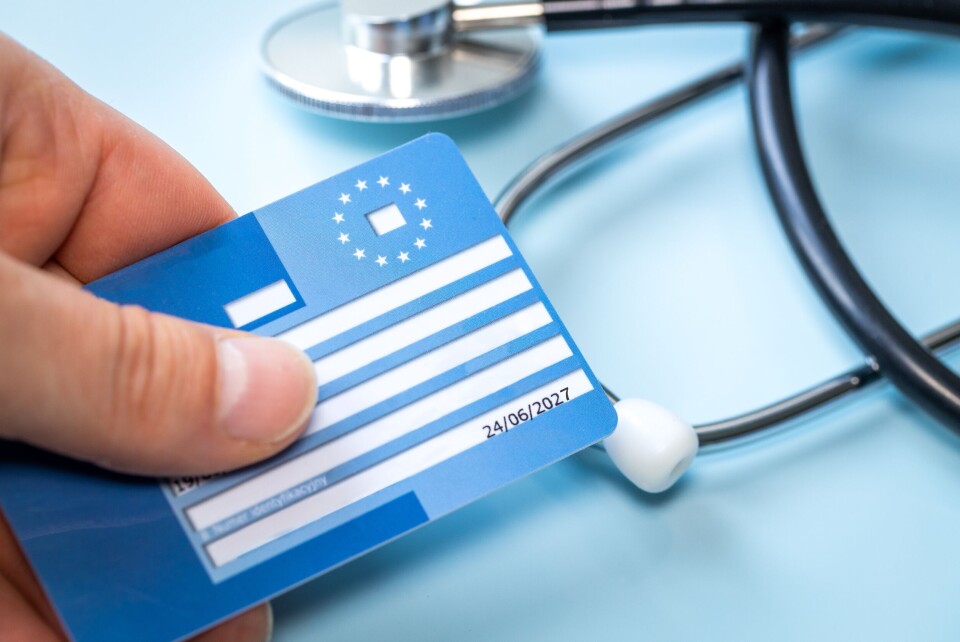-
Phone-at-wheel crackdown on drivers in south-west France
Immediate licence suspensions introduced for offence in three departments
-
Mysterious boom rattles residents in south-west France
'The shockwave clearly went sightseeing across the countryside', says local
-
France tightens reimbursement rules for flight delays or cancellations
New measures include mandatory mediation and new claim procedures
Tips on what to do if you fall ill while on holiday in France
Whether it is an emergency or finding the nearest pharmacy, we provide the numbers to call and websites to visit

The relevant procedures in the case of health issues on a French holiday will vary depending on whether you are a visitor to the country or you live here but are just visiting a different region of France.
In the case of visitors, including non-resident second-home owners, the procedures also partly depend on what country you are visiting from.
If you are visiting from outside France
If you are visiting from outside France then you should make sure - if you are from an EU country - to obtain a European Health Insurance Card (Ehic) before you come.
If you are from the UK there is a compatible scheme called the Global Health Insurance Card (Ghic), which for new applicants replaces the Ehic (if you have an Ehic you can use it until it expires).
If you are not eligible for these schemes, then you should make sure that you have private health insurance suitable for your needs while on the trip.
A Ghic or Ehic entitles you to state-provided medical treatment necessary during your trip. Any treatment provided is on the same terms as French nationals.
If you have to pay out-of-pocket for any treatment eligible for the Ehic/Ghic, you can either apply to the local caisse primaire d’assurance maladie (Cpam) for reimbursement or when you return home (for Britons there is information about NHS refunds at this link). You will need to ask health professionals for a feuille de soins form to make your claim.
Even if you are covered by an Ehic or Ghic note that this does not cover all health-related costs, for example, medical repatriation or mountain and sea rescue, and some private clinics. It also does not cover the part of healthcare costs that are not covered by the standard French social security.
Note that if you fall ill with a minor complaint, it is worth going to the local pharmacy before making a doctor’s appointment as there may be over-the-counter medicines which will help.
If you are eligible for French healthcare
In this case, you can access care in much the same way as if you are at home. When staying far from home, you are also not tied to the system of having to use your own médecin traitant (GP).
However, during working hours, the GP you have registered with in France may be able to arrange either a video consultation with you or give you some information over the phone on what steps to take given your state of health.
Otherwise, you are also perfectly entitled to see another GP and will not be penalised in your reimbursements for doing so. However, do remind doctors to note that you are hors résidence (away from home) when they arrange for your reimbursement.
Finding services
You can either use websites such as Doctolib to find a nearby professional or the state health insurance scheme’s doctor directory.
France’s Health Ministry has also put together a map of healthcare centres that can be accessed across the country when people are not able to access their own GP, including some offering evening, weekend and bank holiday visits.
You just need to search for the closest centre near you and check their opening hours.
If you need to see a doctor outside of working hours, there are also apps which can put you in contact with a doctor 24/7 via a telephone or video consultation. These include Livi, MédecinDirect and Qare.
Pharmacies
Even the smallest towns in France have pharmacies, often with long opening hours.
Visitors using Ghics or Ehics will also receive reimbursement for medicines prescribed to them, on the same terms as people in the French system. You will need to ask for feuilles de soins medical forms to make a claim.
If you need access to an out-of-hours pharmacy in France, you can look up a pharmacie de garde here. If you are in the Ile-de-France region around Paris, you can check the Monpharmarcien website or app to find the nearest out-of-hours pharmacy.
Read also: How to send a prescription to a French pharmacy online
Emergencies
In a medical emergency, you should call 15 for the Samu service, or 114 for those who are hard of hearing.
You will be put in contact with someone who can triage your call, tell you which steps to take, put you in contact with a doctor or give you directions to the nearest appropriate care centre.
If you can, avoid going directly to the nearest hospital emergency services department without calling 15 first as these departments are usually under-staffed in the summer.
Read more: What numbers should I dial in an emergency in France?
Related Articles
French health insurance travel card: How it works and how to get one
























